#Harriet A Washington
Text
im still in the middle of Medical Apartheid and Cobalt Red just came off hold but then I remembered that All This Twisted Glory (This Woven Kingdom #3) comes out next week on Feb 6th and now I’m re-reading the first two because I loved them so much they really hit my need for a fantasy with an interesting plot plus a good romance and it’s by the same author who wrote Shatter Me so if you liked that series I highly recommend it because the main character is so Juliette coded and the writing is so beautiful with funny and quippy dialogue but their speech pattern is Victorian so it’s like a Cinderella/regency romance in a Persian inspired setting with djinn and magic so anyway this is about to be a Tahereh Mafi account for the next two weeks
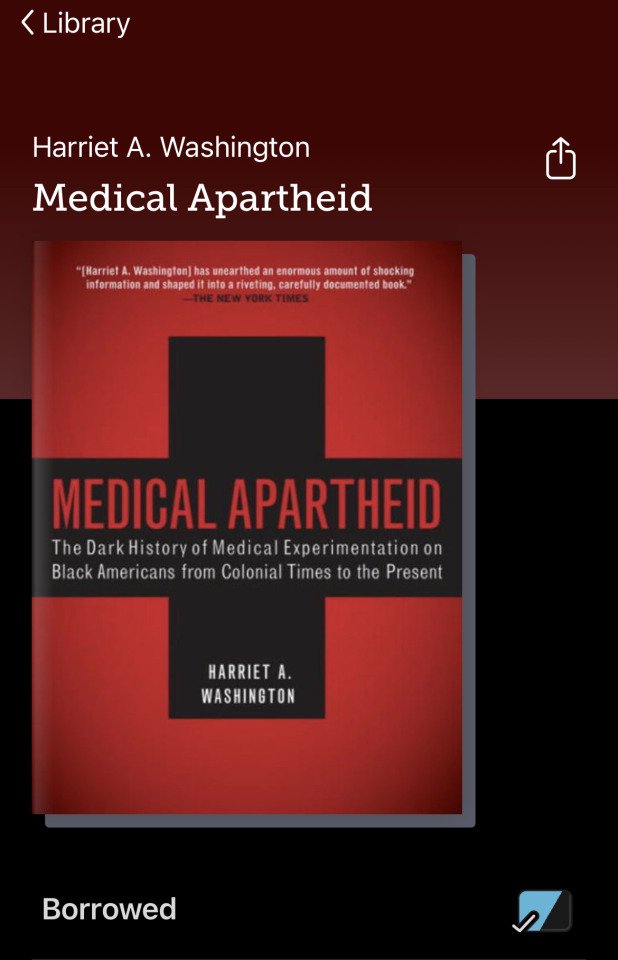



but also I feel a little bit like

#medical apartheid#harriet a washington#harriet washington#cobalt red#siddharth kara#all this twisted glory#this woven kingdom#these infinite threads#tahereh mafi#alizeh#cyrus#kamran#alizehcyrus#juliette ferrars#warnette#bookblr#ya fantasy#reading#shatter me#obviously I had cobalt red get delivered later so someone else could read it#nonfiction#I’m not saying the nonfiction is entertainment btw#I usually alternate genres as I read
2 notes
·
View notes
Quote
Blind Tom, a black mathematical prodigy, was exhibited by his physician owner for years and became famous for his ability to make fiendishly complex calculations more rapidly and exactly than the scholars of his time. He was, however, and idiot savant incapable of the ordinary tasks of everyday living. Because he was black, his condition was often used to illustrate the deleterious effects of intense thought upon the inferior mind of blacks. But the intellectual histories of these exhibited subjects were often falsified, just as their life histories and bodies were. For example, Thomas Bethune, a slave born around 1850 near Columbus, Georgia, was ballyhooed as an untaught musical freak of nature. Actually, Bethune was a trained musical prodigy who gave piano concerts throughout the south as a child and had performed for President Buchanan at age eight. Bethune was proficient in the classical repertoire and capable of complex harmonic inventions. He played popular music superbly, too, but, rather than being regarded as an American Mozart, he was relegated to circuses and minstrel shows.
Harriet A. Washington, Medical Apartheid
#model minority#model minority myth#black excellence#Affirmative Action#medical apartheid#harriet a washington#harriet a. washington#harriet washington#washington#Medical apartheid : the dark history of medical experimentation on Black Americans from colonial times to the present#the dark history of medical experimentation on Black Americans from colonial times to the present#2006#washington 2006
11 notes
·
View notes
Text

[Pictured: Two Books side by side. The first is Killing the Black Body by Dorothy Roberts. The second is Medical Apartheid: The Dark History of Medical Experimentation on Black Americans from Colonial Times to the Present by Harriet A. Washington. ]
In light of the Roe v Wade decision, I'd like to take a second to recommend two excellent books written by black women on how reproductive rights (and the medical industry in general) in the U.S. have always been built on black bodies.
J. Marion Sims, the so called "Father of Gynecology", a heroed figure in modern medicine, made his discoveries by meticulously torturing his slaves and disfiguring their genitals.
Margaret Sanger, known as a "birth control activist", pushed birth control as a eugenics program to limit the number of black people in America.
Medicines and surgeries were created by forcing black people to be the subjects of experiments, and we pay them back by preventing them access to those same medicines and procedures (Washington's "Medical Apartheid" especially goes into this).
Black people are still 2 to 3 times more likely than white people to die during pregnancy and labor.
What I'm saying is, we are all affected by this, but black people are once again going to be disproportionately affected. And I bring this is up because I want to emphasis some very important:
That's not a bug in the system, it's a feature.
#social#black rights#reproductive rights#reproductive health#tw: racism#my posts#harriet a Washington#medical apartheid#dorothy roberts#bookblr
2 notes
·
View notes
Text
The perception of evil in such cases, I realized, can prove as damaging as malfeasance itself.
— Medical Apartheid: The Dark History of Experimentation on Black Americans from Colonial Times to the Present by Harriet A. Washington
1 note
·
View note
Text
A Terrible Thing to Waste - Harriet A. Washington
★ ★ ★ ★/5
This book was a brilliant collection of data. The author aims to stay objective in her presentation of environmental racism, and I think she does it well. The truth is that many Black and Brown Americans are living in poisoned communities, and not by their own doing. Waste sites, chemical plants, and fossil fuel extraction sites are disproportionately placed in POC neighborhoods and the chemicals that come from such sites are robbing children of their intelligence and futures. In my opinion, this move is entirely intentional and done to keep minority communities weak. This environmental injustice is infuriating and reading this book, with all the statistics laid out, I can't believe that people could be so blind to it. I guess that's the point. Anyways, I highly recommend this book, it's a bit repetitive but worth it in every way.
#a terrible thing to waste#harriet a washington#environmental justice#environmental racism#booklr#book blog#reader#book review#reading#books#nonfiction
0 notes
Text
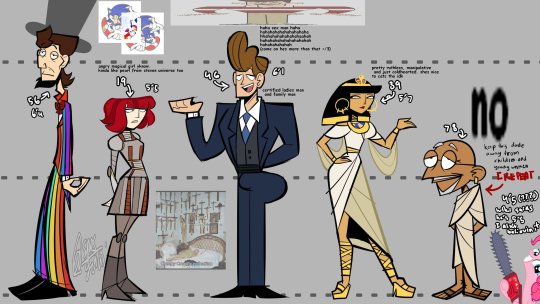
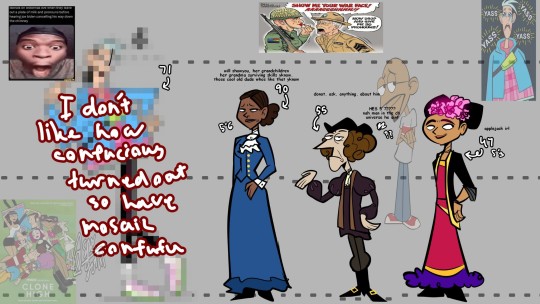


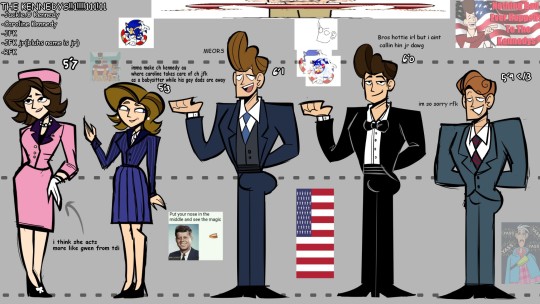
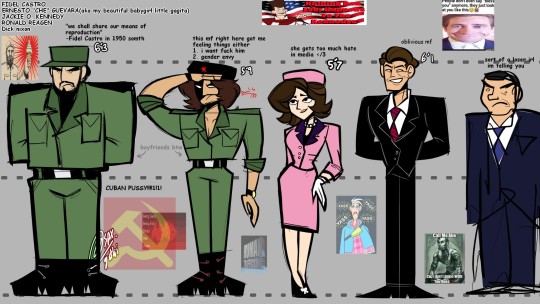

very not so good clone designs i did *FOR FUN* + kennedys + idfk people who died +joanfk interaction ril. These losers aint SHIU
#clone high#clone high jfk#clone high abe#clone high joan#clone high fanart#clone high topher#clone high gandhi#clone high cleo#clone high harriet tubman#clone high frida#clone high catherine the great#clone high jesús christo#clone high marie antoinette#clone high george washington carver#and the others#artists on tumblr#che guevara#fidel castro#jackie kennedy#ronald reagan
568 notes
·
View notes
Text
From the era of slavery to the present day, the first full history of black America’s shocking mistreatment as unwilling and unwitting experimental subjects at the hands of the medical establishment.
Medical Apartheid is the first and only comprehensive history of medical experimentation on African Americans. Starting with the earliest encounters between black Americans and Western medical researchers and the racist pseudoscience that resulted, it details the ways both slaves and freedmen were used in hospitals for experiments conducted without their knowledge—a tradition that continues today within some black populations. It reveals how blacks have historically been prey to grave-robbing as well as unauthorized autopsies and dissections. Moving into the twentieth century, it shows how the pseudoscience of eugenics and social Darwinism was used to justify experimental exploitation and shoddy medical treatment of blacks, and the view that they were biologically inferior, oversexed, and unfit for adult responsibilities. Shocking new details about the government’s notorious Tuskegee experiment are revealed, as are similar, less-well-known medical atrocities conducted by the government, the armed forces, prisons, and private institutions.
The product of years of prodigious research into medical journals and experimental reports long undisturbed, Medical Apartheid reveals the hidden underbelly of scientific research and makes possible, for the first time, an understanding of the roots of the African American health deficit. At last, it provides the fullest possible context for comprehending the behavioral fallout that has caused black Americans to view researchers—and indeed the whole medical establishment—with such deep distrust. No one concerned with issues of public health and racial justice can afford not to read Medical Apartheid, a masterful book that will stir up both controversy and long-needed debate.
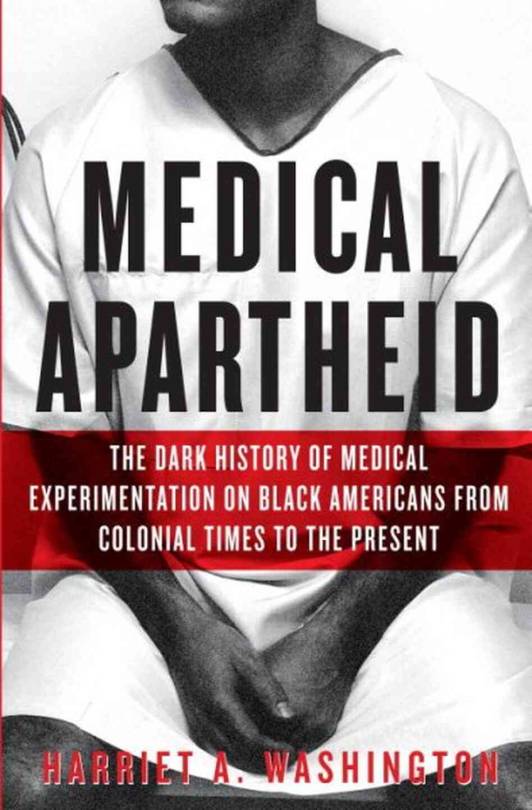

#book: medical apartheid#author: harriet a. washington#genre: non fiction#genre: history#year: 2000s
86 notes
·
View notes
Text
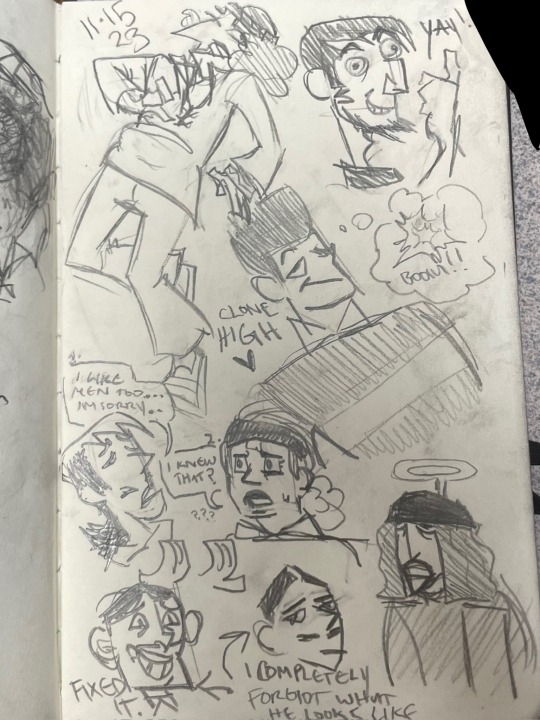
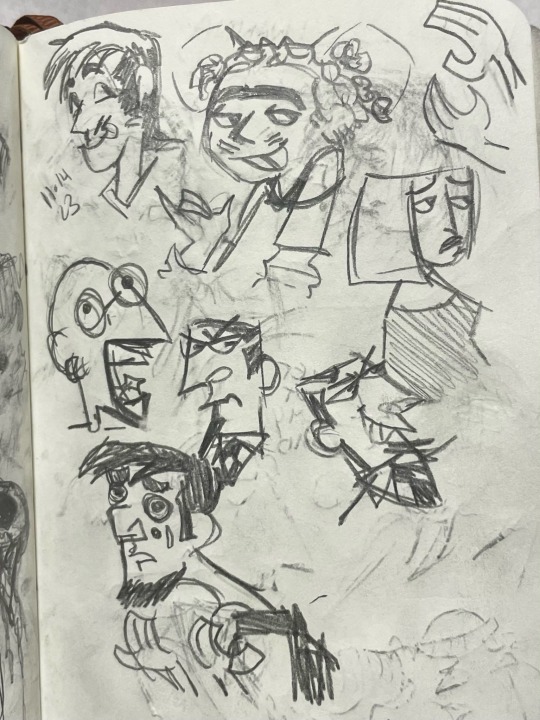

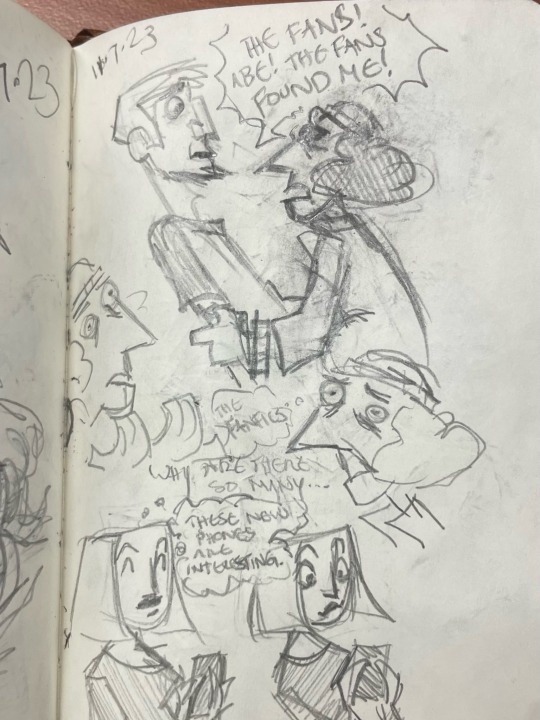






Here are some cartoon sketches. (I know my handwriting is terrible, I put the messages in the alt thing.)
Also hey! I'm doing two posts back to back, this is 2/2.
#artists on tumblr#clone high#clone high fanart#clone high season two#clone high season 2#clone high topher#clone high joan#clone high abe lincoln#clone high jfk#clone high confucius#clone high harriet tubman#clone high george washington carver#clone high gandhi#clone high scudworth#clone high jesús christo#clone high frida#clone high ponce
104 notes
·
View notes
Note
Why do you hate Alexander Hamilton so much? The guy lived and died before you were even born dude. He isn’t going to come alive and bite you XD
No, his actions just persist in the policies that my home nation was founded upon.
#guy was a warmongerer and also wanted Washington to basically play king#his politics were conservative and he offered to buy enslaved persons for his wife if she wanted#so he's not the abolitionist hero some like to paint him as#and Burr only challenged Alexander to a duel after MANY YEARS of Alex undermining his political ambitions#and trying to undermine voting results (intentionally party-splitting to get the other to win) so obviously once that George III knew#this is without getting into the adultery#look the musical fucked I can't deny that even after LMM's personal issues and the fandom that was born of it#and bi rights or whatever#(I am bi)#but as a person he objectively sucked#and I am allowed to have opinions on people fictional and dead even if they are no longer capable of actively directly influencing Now#PARTICULARLY when it's someone whose actions Have Indeed influenced modern history#his face is on the $10 ffs THAT'S how influential he was#not just with the formation of the modern banks but in general#tbh replace Alexander Hamilton instead of Andrew Jackson with Harriet Tubman#bc Jackson HATED the banks and Hamilton would HATE having his legacy diminished#if we're replacing Jackson we should replace him with Crazy Horse or another historically significant indigenous person#answers and shitposts#personal
51 notes
·
View notes
Photo
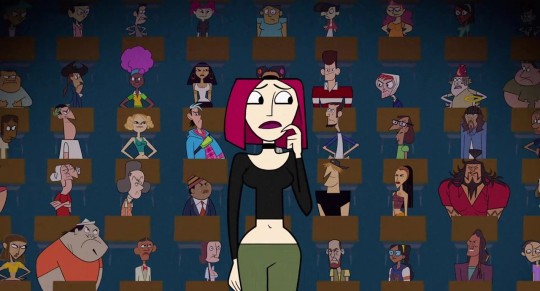
Joan of Arc moments before getting burned at the stake...again...this time by her peers, 2023 (colorized)
#joan of arc#candide sampson#clone high#everybody hates joan#clone alone#colorized#f u candide#abe lincoln#jfk#vincent van gogh#genghis khan#george washington carver#clone high harriet tubman#clone high cleo#frida kahlo#clone high frida
140 notes
·
View notes
Text
Servants I Want to see in FGO
Catherine the Great (Rider/ Ruler)
Saint Olga of Kiev (Ruler/ Avenger)
Tomyris (Lancer/ Rider)
Hua Mulan (Archer/ Lancer)
George Washington (Rider)
John Henry (Lancer)
Molly Pitcher (Archer)
Harriet Tubman (Rider/ Archer)
Mary Seacole (Caster)
Harry Houdini (Caster)
Judith (Book of Judith) (Assassin)
Abhimanyu and Vrishaketu (maybe Archer for both ?)
Pyotr Ilyich Tchaikovsky (Caster)
Sybil Ludington (Rider)
Deborah Sampson (Archer)
BONUS
Yudhishthira (Saber) - but as a Lily version of himself so that he can be the pampered little brother for once and not have to put up with his younger brothers’ BS. Duryodhana tries to make fun of him for it and Yudhi goes running to Karna, crying. While Karna chastises Dury for making fun of him, Yudhi evilly smirks at Dury from behind Karna, who faithfully plays into the Big Brother role. EVERYBODY is aware that Yudhi is basically playing Karna besides Karna!
Inspo links: (1) @krishna-premi (2) @fanfictionroxs
#my posts#fate grand order#fate series#fate grand/order#fgo#fate go#catherine the great#saint olga of kiev#tomyris#hua mulan#george washington#john henry#molly pitcher#harriet tubman#mary seacole#mother seacole#harry houdini#abhimanyu#vrishaketu#yudhishthir#Yudhishthira#just a silly thought i had#fgo servants i want#judith#book of judith#oc servants#fgo ocs#ocs fgo#fan servant#fate oc
18 notes
·
View notes
Note
🖊🖊
Been thinking a lot about TURN: Washington’s Spies and the American Revolution lately. So here’s every original character I can theoretically stick into that universe… @eurydicefades 🫡
American Revolution podcast.
American Revolution: playlist.
TURN: playlist.
Benjamin Tallmadge: playlist.
Rococo playlist.
French History podcast.
In no particular order…

Audrey: based on Kitty Fisher and Charlotte Hayes, born 1750, turned 1780 at the age of 30. Well-to-do sex worker, coquette, disowned daughter of a Viscount. Abolitionist. She/they, bisexual-polyam. Vampire.
Camille: based on Mary Wollstonecraft and various French Revolution ladies. Audrey’s half sister, unlike her, never disowned, still hates her Viscount father. Abolitionist, anti-monarchist, pamphlet writer, and social climber. Turned into a vampire in 1790. She/her, bi. Vampire.
Artémise: Dutch and Black-Creole New York socialite, spy for the culper ring, and violinist. An informant, a fashionista, bit of diva, excellent listener. Will sell you out to Benjamin Tallmadge. She/her, bi.
Benjamin Fisher: Benjamin Tallmadge, vampire/anti-hero arc. He/him, bi (closeted). Staff to Washington, from New York, trying really hard to be good, but vampirism won’t let him. Turned by Audrey in 1781. Vampire.
Charles: Colonel in the British army. Good at following orders, only doesn’t like his job. It’s a constant existential crisis, he knows neither side is right, he’s sworn to the British by duty not by choice. Scottish and French, English born. Based vaguely on Ross Poldark. He/him, bi. Has a deceased wife and daughter he’s still mourning.
Eliott: Spy for the British army. Follows orders for social gain and security, not cause he wants to. Poet turned spy, he/him, bi. Much like Tallmadge, he is a young man, having control taken from him far too often. Really just doesn’t want to be hung as a traitor to the crown. Irish and Catholic. Hates all of the army, expect Major André and Simcoe.
Carlotta aka Charlotte: French socialite, unknowing informant to the Patriots. She/her, bi. Somewhere between culper ring spy and French nobility looking to escape France due to pending revolution back home. 1/2 characters here who are not made for battle situations.
Edith: Maryland based loyalist, loyalist out of love for her family. She/her, bi (closeted). Catholic but very English. A civilian caught in a bad situation, didn’t do anything wrong, unless love for one’s family is a sin. Honestly reminds me of a Liberty’s Kids character and Sarah Livingston (Turn) but younger. Of marriageable age (24), good natured, well meaning, loyalty to what she deems moral just has her in a bad situation.
Harriet: Boston based dress maker and painter, sometimes pamphlet writer. Free woman of global majority (colour), Black and Welsh. She/her, bi. Yet another civilian caught in a war they didn’t ask for. Declares neutrality to survive, probably more on the side of the continental army, but she’d rather not the gallows.
Verity, Nancy & Sally/the tombeor polycule: their last name isn’t actually their last name, it’s a French title meaning “performer.” Like a code name. A polycule of three black/Irish sex worker women who are all dating each other and their clients, at the same time, she/her(s) all bi-poly-sapphic. Sex workers and spies for the culper ring, but their loyalty isn’t a cheap. Technically they declare themselves neutral in the war, it’s all lies.
#meera answers#ashfordlabs#answered#oc: Audrey#oc: camille#oc: artémise#oc: Benjamin fisher#oc: charles#oc: Eliott Baird#oc: Carlotta#oc: edith#oc: Harriet#oc: verity#oc: sally#oc: Nancy#18th century#american revolution#turn: washington's spies#bisexual#turn washington's spies#amc turn#turn amc#queer#lgbtq+#vampires#monstrous other#writing historical fiction#historical fiction#writing horror#gothic horror
15 notes
·
View notes
Text
24 Days of La Fayette: December 1st - Edmund Brice
Edmund Brice was on of La Fayette’s earliest aide-de-camps but not among the most famous ones. He is however one of the men that we still have the Acts of Embarkation of. In France at the time there were strict laws regarding religion. Huguenots (who, in very simple terms, were not Catholic) were prohibited from leaving the country. To enforce this law, every French person who wanted to leave France had to attest their Catholicism. Edmund Brice was one of La Fayette’s fellow travellers on La Victoire and therefor had to go through the same process. These Acts contain a lot of mistakes, sometimes because the clerk misspelled or misinterpreted information and sometimes because members of the expedition made misleading statements on purpose to obscure their identity. One of this may be the reasons why Edmund Brice’s name is written as “Leonard Price” on his Act of Embarkation.
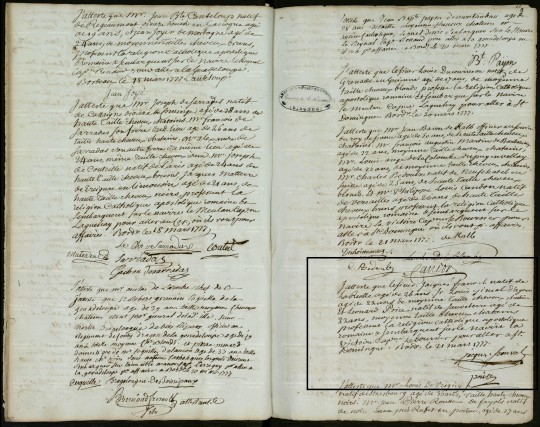
Archives départementales de la Gironde, Histoire maritime (1640-1889), Certificats de catholicité (1713-1787), 1777-1784 (07/29/2022).
Brice was a native of Annapolis, Maryland and the French papers tell us, that he was of average height for a man at the time (Moyenne taille). His hair colour was recorded as a dark blond (cheveux chatains). There is a small portraiture that survived of Brice.
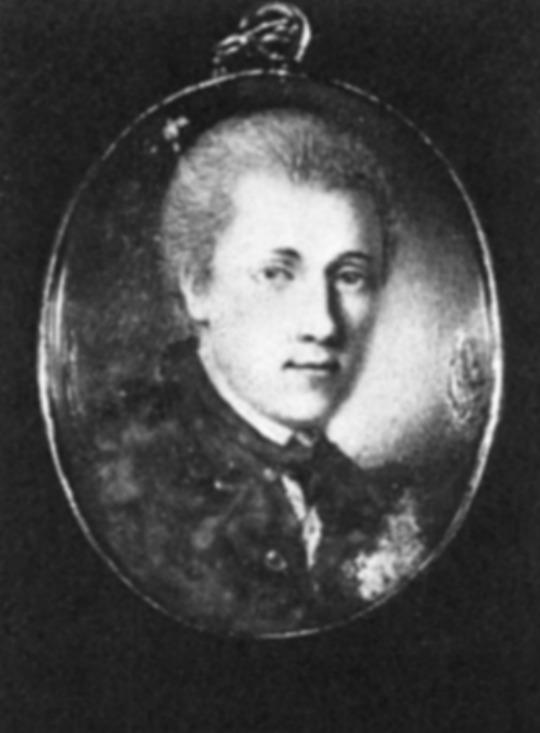
Idzerda Stanley J. et al., editors, Lafayette in the Age of the American Revolution: Selected Letters and Papers, 1776–1790, Volume 1, December 7, 1776–March 30, 1778, Cornell University Press, 1977, p. 50.
His age on March 21, 1777, the date of his Embarkation, is noted as 22 but that is wrong as well. Brice was born in 1751 (therefore being 26, not 22) and died in 1784 at the age of 33.
Brice had travelled to Europe to study art and painting and there he met La Fayette. In a letter from March 16, 1777 to John Hancock, Silas Deane wrote about Brice in the following terms:
I send you for your entertainment, by Mr. Brice, a young gentleman of Maryland, whom I think deserving your notice, as a worthy sensible young man, the London papers, in which you will perceive the character I have the honor of bearing in England, and that I have fled, &c. &c., which causes diversion here.
Idzerda Stanley J. et al., editors, Lafayette in the Age of the American Revolution: Selected Letters and Papers, 1776–1790, Volume 1, December 7, 1776–March 30, 1778, Cornell University Press, 1977, p. 33-34.
Brice left Paris on March 18 for Bordeaux where he arrived in time to embark onboard La Victoire on March 21. Given that he was American and was fluent in England, it is quite easy to imagine that La Fayette enjoyed his company during the crossing of the Atlantic. He wrote on April 19, 1777 in a letter to William Carmichael:
Thank you very much for having given me Mr. Brice. I like him very much, and he is popular with everyone. We shall always be together, as you seem to have desired.
Idzerda Stanley J. et al., editors, Lafayette in the Age of the American Revolution: Selected Letters and Papers, 1776–1790, Volume 1, December 7, 1776–March 30, 1778, Cornell University Press, 1977, p. 50.
After landing off the coast of Charleston, Brice was among the six officers that travelled with La Fayette and the Baron de Kalb to Charleston and from there to Philadelphia. While travelling, Brice functioned as a guide, although he was not familiar the area.
The Marquis's aide-de-camp took it upon himself to serve as our guide, even though he had no knowledge of that part of the country.
Memoirs of the Chevalier Dubuysson in Idzerda Stanley J. et al., editors, Lafayette in the Age of the American Revolution: Selected Letters and Papers, 1776–1790, Volume 1, December 7, 1776–March 30, 1778, Cornell University Press, 1977, p. 73-87.
In Philadelphia, La Fayette applied through John Hancock to George Washington to make Edmund Brice and three other man his aide-de-camps. These permissions were in the end granted although Washington was at first not that happy. Brice was commissioned a Major in 1777 and in October 1778 he was made a brevet lieutenant colonel by the Continental Congress. His promotion was noted in a letter from Henry Laurens to George Washington from October 30, 1778:
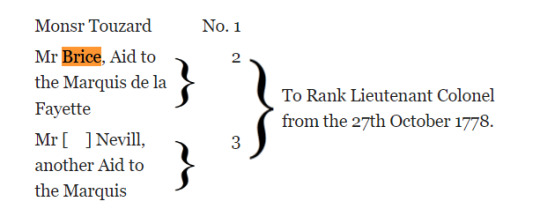
“To George Washington from Henry Laurens, 30 October 1778,” Founders Online, National Archives, [Original source: The Papers of George Washington, Revolutionary War Series, vol. 17, 15 September–31 October 1778, ed. Philander D. Chase. Charlottesville: University of Virginia Press, 2008, pp. 647–649.] (07/29/2022)
On October 16, 1778 La Fayette had written Congress to praise the actions of a soldier under his command and to ask Congress for promotions for his aide-de-camps. The letter was read in Congress on October 27, 1778 and resolutions were passed. The soldier that had distinguished himself (and had lost an arm in action) was awarded a livelong pension of 30 Dollar per month. Congress granted La Fayette’s American aide-de-camps, Brice and Neville, a promotion but not his French aide-de-camps. That in turn promoted La Fayette to write another letter on behalf of his French aide-de-camps to Congress on October 27, 1778.
Brice worked closely with La Fayette and often functioned as a liaison-officer between La Fayette and the Board of War or the Continental Congress (and in that aspect especially Henry Laurens). There are many instances where La Fayette writes that a certain letter will be or was delivered by Brice. Brice also once delivered a considerable number of congressional pamphlets from York Town to Washington’s headquarters. During the Battle of Gloucester, Brice’s horse was wounded. It also seems as if Brice was quite good when it came to decipher difficult handwritings. Henry Laurens wrote to La Fayette on March 6, 1778:
I cannot, even with Mr. Brice's aid, decypher the name coupled with that of Monsr. "Failly."
Idzerda Stanley J. et al., editors, Lafayette in the Age of the American Revolution: Selected Letters and Papers, 1776–1790, Volume 1, December 7, 1776–March 30, 1778, Cornell University Press, 1977, p. 336-338.
Brice had stayed some time with Laurens after delivering some papers to him and left on March 6, 1778. Brice also managed financial affairs, at one point affirming the receipt of 6000 Dollar in the name of the Marquis de La Fayette. At one point he also bought an enslaved man for La Fayette for the price of 180 Pounds on August 4, 1777.
It seems as if Brice quitted his post as La Fayette’s aide-de-camp after receiving his new commission on October 27, 1778.
Edmund Brice was the youngest child of his family. His older brother James Brice served in the War as well. He was first a Captain in the city militia and later a Lieutenant in the county militia. His services would earn him the honorary title of Colonel later on. I believe that Edmund married Harriet Woodward (born in 1762 and died in 1840) and they had a son, James Edmund Brice, together. Harriet remarried Alexander Murray after Brice’s death. The Brice’s were a very prominent family in Maryland at the time and it is sometimes difficult, especially with regard to biographical information, to know witch “Mr Brice” is talked about.
#marquis de lafayette#la fayette#24 days of la fayette#lafayettes aide-de-camps#french history#american history#letter#1777#1778#edmund brice#george washington#henry laurens#james brice#harriet woodward#founders online#maryland#american revolution
21 notes
·
View notes
Text
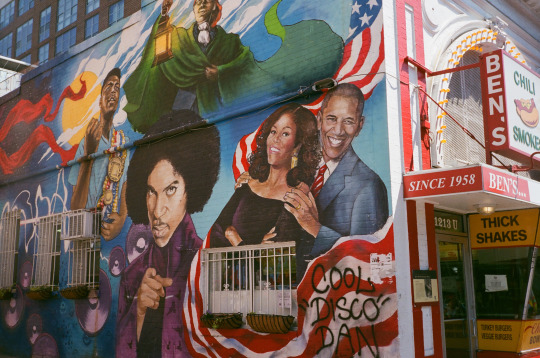
Ben's Chili Bowl mural, Washington, D.C., May 2023
#mural#wall art#prince#obamas#obama#barack#michelle#michelle obama#barack obama#washington#washington dc#harriet tubman#muhammad ali#cool disco dan#america#americana#fast food#milkshake#chili#dc
4 notes
·
View notes
Text
(clip from “Bone Black: Midwives vs The South” by Imani Nikyah Dennison)
Y’all remember these ads? Circa 2011.

Something never felt right about it — it was very unsettling (but at the time, I absolutely did not have the knowledge then to know why).
Never once was it mentioned on that ad the maternal & infant mortality rate amongst Black women being the highest because of racism in the medical industry. Never once was it stated that because of implicit bias, Black women aren’t believed or taken seriously when in pain. Never once was it stated that preventive care to prevent the high risk of preeclampsia and eclampsia and miscarriages was totally misdiagnosed or under-diagnosed or flat out not recommended. Never once was it stated that because of all this, Black soon-to-be mothers are afraid to enter hospitals to give birth in fear they and their unborn child won’t make it out alive because of these implicit biases and overall racism.
#Bone Black: Midwives vs The South#Imani Nikyah Dennison#Harriet Washington#midwives#midwifery#Black mothers#Black babies#Black midwives#Black doulas
3 notes
·
View notes
Quote
"But," as the late naturalist Stephen Jay Gould mused, "why should the violent behavior of some desperate and discouraged people point to a specific disorder of their brain while the corruption and violence of some congressmen and presidents provokes no similar theory?"
Stephen Jay Gould Medical Apartheid: The Dark History of Medical Experimentation on Black Americans from Colonial Times to the Present by Harriet A. Washington
39 notes
·
View notes